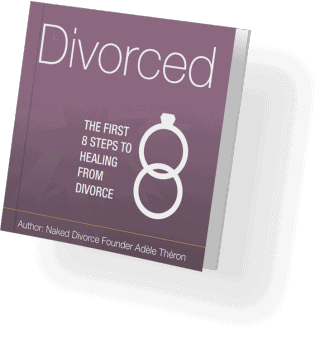
Free e-book: The First 8 Steps to healing from divorce

I know it seems ominous to focus on making plans for your death but divorce chucks everything up and if you have divided assets, it’s important to work out what you want to have happen upon your death. For anyone who doesn’t know what this is: A will or testament is a legal document that expresses a person’s (testator) wishes as to how their property (estate) is to be distributed after their death and as to which person (executor) is to manage the property until its final distribution. For the distribution (devolution) of property not determined by a will, see inheritance and intestacy.
Here is a resource you can use to create your Last Will and Testament yourself online.
You can also download these templates below and pick the one which works best for you:
- Last Will and Testament Template 1
- Last Will and Testament Template 2
- Last Will and Testament Template 3
- Last Will and Testament Template 4
- Last Will and Testament Template 5
- Last Will and Testament Template 6
- Last Will and Testament Template 7
You don’t have to consult a lawyer (although it is advisable). There is a great deal you can do on your own. Here is a guide to drawing up your last will and testament without a lawyer. These tips are summarized from the ehow website (www.ehow.com):
- Write a list of all of the things that you would like to donate to anybody. You don’t have to decide who gets what while creating this first list, but you need to clarify what exactly you don’t mind donating to the government and what you’d prefer your family, friends, co-workers, and even your alma mater, to receive. This list can include everything from your photo albums and boxes of letters to your mutual funds.
- Choose an executor. This is the person who would distribute all these valuables. Your executor should be willing to follow your directions. Avoid choosing on executor who might have a conflict of interest. People tend to become protective of a loved one’s items and want to claim things that you may not feel they are entitled to. For example, if you have a relative who has never supported your music career but wants to have your demo, it’s probably to sell it, not to blast it in their car.
- Create a list of people you feel are deserving of your things, including your pets, if you were deceased. Be careful with this list. If you are mad at someone at the moment, don’t exclude them if you believe the 2 of you will make up. This list can be updated as often as you like, but try to put the most obvious and significant people on your list for distribution.

- Decide who will get legal guardianship of your children. This should be noted in your will. Although you may have already appointed a godmother or godfather, depending on your religion, it’s not official unless it’s recorded on some kind of documentation such as a birth certificate or will. Even if it is on a birth certificate, notate it on your will to show that the relationship between you and the godparent(s) hasn’t changed.
- Consider alternate beneficiaries or executors. If you make a will and then your executor passes away or cannot be located, there needs to be someone else who can decide on the distribution of your money and belongings.
- Make a note of how you want your remains to be dealt with. Cremation or burial? If you prefer to be buried, ensure your executor knows where your burial insurance is. Be reasonable in terms of the costs your family may need to incur to bury you.
- Have 2 people who are in good health and in their right mind sign your living will. Ensure that the 2 people see you sign the will so they can confirm that you were also in good health and in your right mind, and have not been forced to create the will by coercion. Please note that the 2 witnesses who sign your will and confirm you wrote it can’t be among the beneficiaries of your will.
- Update or read over your will at least once a year to make sure nothing has changed. It doesn’t cost a thing to get 2 more people to sign your will if you decide to change beneficiaries and executors. Also, there may be other changes. You may have sold your stock or traded in your car for a motorcycle. When these things are not up to date, it can cause confusion.
- Keep a copy of your will in your home and give a copy to your accountant or lawyer (if you have one).
If you enjoyed this post, I’d be very grateful if you’d help it spread by emailing it to a friend, or sharing it on Twitter or Facebook.
With you in service

 Book a Clarity Call for any divorce or break up support you need,
Book a Clarity Call for any divorce or break up support you need,


As disinterested professional – in the UK we aren’t allowed to deal with US citizens because the size of claims for anything is so very high our insurance companies won’t take the risk – I do think that DIY Wills are dangerous.
We’re just dealing with one for a famous musician and his idea of writing a Will just wouldn’t pass muster anywhere.
But once you have a well thought through Will – whether professional or not – you need to reconsider it on a regular basis. Our service encourages folk to review every year – it may only take 10 minutes. But if they have invalidated their Will by marriage or they have become separated which doesn’t change an existing Will in the UK, then they need to do something about it – pronto!
In the UK there are dozens of life events which should trigger a review – and then you add on changes in the Law and in Tax and – without ongoing professional advice there is little chance of a DIY Will staying up to date, tax efficient and relevant to current circumstances.
Excuse any quaint English spelling!